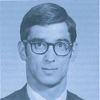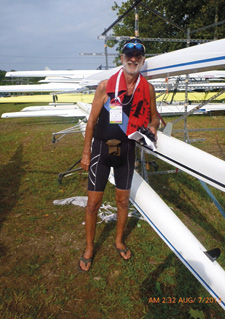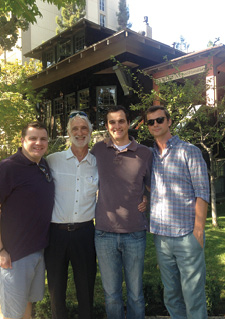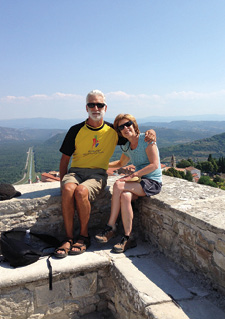Steven Albert Haworth – 50th Reunion Essay
Steven Albert Haworth

Spouse(s): Dorothy Ann Craft (1972-1987); Susan Amy Shulman (1997-present)
Child(ren): Daniel Haworth (1976); Benjamin Haworth (1980); Andrew Haworth (1982)
Grandchild(ren): Hilary Haworth (2008); Charlotte Haworth (2011); Maggie Haworth (2013); Frankie Haworth (2014); Whit Haworth (2015); Ellie Haworth (2017); John Joseph Haworth (2018)
Education: Yale, BA, 1969; The George Washington University, MA, 1971; University of Virginia, PhD, 1978
Career: Economist, World Bank (DC), 2 years; Assistant Professor Political Science, Agnes Scott College (Decatur, GA), 8 years; Vice President Public Relations, CNN (Atlanta), 12 years; Vice President Marketing and Communications, RealNetworks (Seattle), 2 years; Adjunct Instructor Humanities, Cornish College of the Arts (Seattle) 11 years
College: Jonathan Edwards
What I Did Not Learn at Yale
I thought long and hard about the suggestion to comment here upon whether I feel Yale prepared me with an understanding of what constitutes a “life well lived.” I decided it felt a little presumptuous for me to suggest that I even now know what that means. Instead, I will highlight some things I did not learn at Yale, but only came to understand, however imperfectly, after leaving Yale in June 1969.
In no particular order of importance, I wish I had been confronted at Yale with a less ethnocentric understanding of the world. It did not dawn on me until well after 1969 that US dominance in the 20th century (and before it, British) was an aberrant blip in the course of history. Yale did not prepare me either for the 21st century decline in Pax Americana, nor for the resurgence of a world power in Asia in the 21st century.
Secondly, Yale also failed to instruct me as to the powerful grasp of institutional racism in the US That the nation and Yale were founded by men who either personally benefitted from slavery, or at least facilitated the perpetuation of slavery for many decades after the founding of Yale and the American Revolution was not a part of the core curriculum I was encouraged to study.
Furthermore, while it should have been patently clear to me due to the very nature of our “men only” education that we were part of a misogynistic culture, I didn’t take a single course, or even find a single reading on the topic in any of my syllabi. Now 50 years later, the extent of gender discrimination and harassment is inescapable. Only now so clearly recognized, can we look to the possibility of true gender and racial equality.
Lastly, while I was a social science major, my Yale education was remiss in not teaching me of the well-founded science of climate change, already clearly identifying by 1969 its anthropocentric roots. Yale’s distribution and major requirements had allowed me to get a BA without a single assignment on the topic.
But while Yale let me graduate with little or no exposure to the above trends, dominant in the late 20th and early 21st centuries, I took something away with me when I left Yale that did prepare me to cope with them. A deep love of learning was nurtured and abetted by my teachers and fellow students at Yale. Undoubtedly most importantly, I took from Yale deep friendships with some of the most talented, intelligent, compassionate fellow travelers on this life path. For 50 years now we have reunited, golfed, imbibed more than a little, grieved the loss of compatriots, celebrated the marriages of children, exalted in the birth of grandchildren, and often commiserated about the plight of personal and world affairs. For lifelong respect for the pursuit of knowledge and for introducing me to friends for life, I salute you, Yale. “Boola Boola.”

Preparing to race the single at the 2013 World Masters Games in Torino, Italy. With three great scullers, I won a gold in the men’s 60+ quad.

Steve (2nd from left) with sons Andrew, Ben and Daniel, 2014

Steve and wife Susan on holiday in Croatia, 2013
If the above is blank, no 50th reunion essay was submitted.
